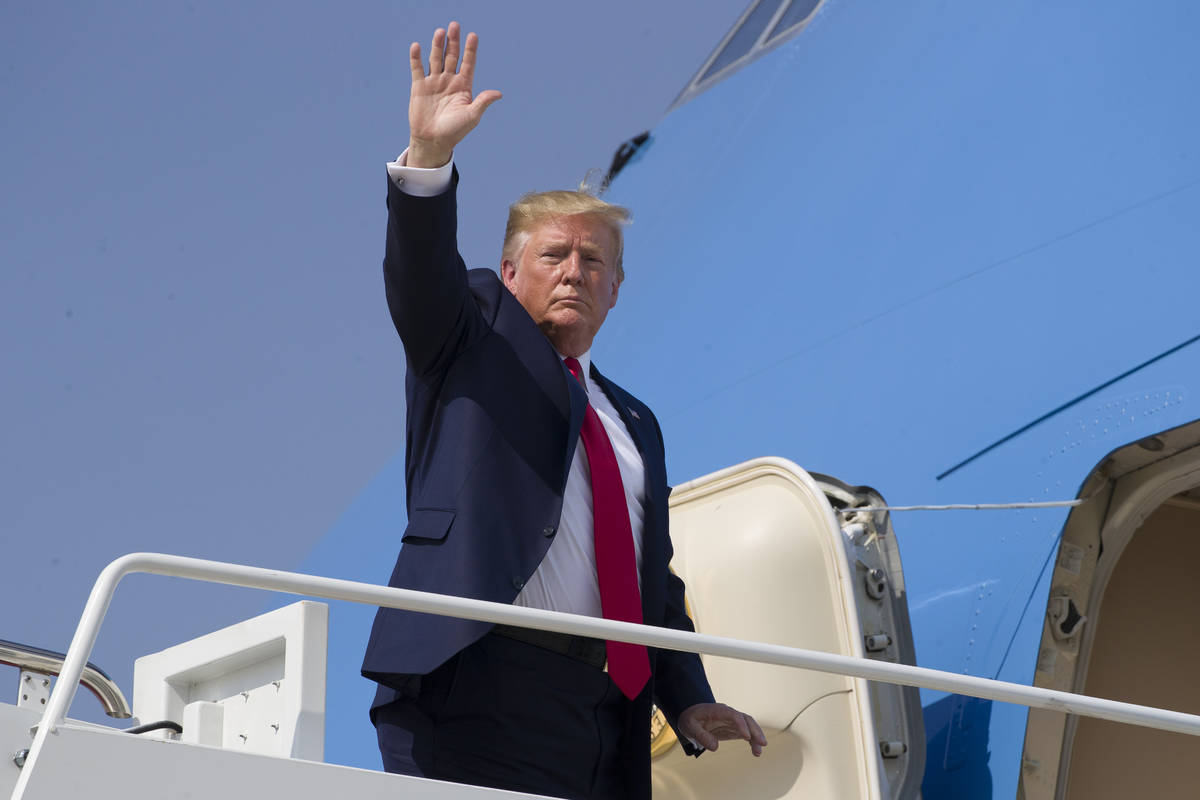CLARENCE PAGE: ‘White privilege’ is all around us, we need to understand, deal with it

Asking President Donald Trump how he feels about “white privilege” is sort of like asking a young fish how it feels about water.
As the late author David Foster Wallace tells the fable in an unusually famous commencement address, the young fish doesn’t know what water is. He’s way too close to the subject.
That’s how President Trump sounded when renowned journalist Bob Woodward, son of an Illinois lawyer and judge, asked him this question in a June interview, one of 18 Woodward conducted with Trump for “Rage,” the author’s latest book to probe the Trump presidency.
“Do you have any sense that that privilege has isolated and put you in a cave to a certain extent,” Woodward asked, “as it put me and I think lots of white privileged people in a cave and that we have to work our way out of it to understand the anger and the pain, particularly, Black people feel in this country?”
“No,” Trump responded, slightly taken aback by the question. “You really drank the Kool-Aid, didn’t you? Just listen to you. Wow. No, I don’t feel that at all.”
Too bad. If he did, he might be doing better in the polls. A Marist poll in June found two-thirds of Americans thought Trump has made racial tensions worse since the death of George Floyd under a police officer’s knee touched off a nationwide racial reckoning.
But still, I wince when I hear the words “white privilege.” I don’t deny its existence. But as I try to encourage the cross-racial dialogue that we so desperately need in our increasingly diverse country, I find the term often proves to be more trouble than it’s worth.
For one thing, when I say it to mean its original academic meaning — systems that benefit white people over nonwhite people in some societies — I hear from white people who accuse me of accusing them of racism and go on to tell me about how hard they and their ancestors worked to make it on their own in this country. I get it.
In fact, I mean nothing personal. I am using it only in the way the fabled fish is intended to hear about water. It’s all around us and for the common good we need to understand it and deal with it — or it surely will deal with us in the most damaging ways.
Unfortunately, President Trump, despite his frequent attacks against “political correctness” and “cancel culture,” recently has responded with cancellation, particularly of racial sensitivity training in federal agencies. He’s gunning for any training that addresses such topics as “white privilege” and related “critical race theory,” which he calls “divisive, anti-American propaganda.”
Citing “press reports” of training sessions at which employees were allegedly told “virtually all white people contribute to racism,” Russell Vought, director of the Office of Management and Budget, ordered the review and possible cancellations in a Sept. 4 letter to federal agencies.
Well, as with “white privilege,” I, too, have objected to some of the excesses of “PC,” “cancel culture” and “critical race theory” that I have encountered on campus and elsewhere. But we talked out the disputes. Efforts to resolve and learn from cultural differences should be discussed and debated, not muzzled.
But this is an election year, isn’t it? Not surprisingly Trump’s retweets express delight over the approval his supposed clampdown has received from conservative media as Election Day approaches. To a tweet that called “critical race theory the greatest threat to western civilization,” for example, Trump responded “Not any more.”
All hail our hero.
Media guru Marshall McLuhan declared back in the 1960s, “Propaganda ends where dialogue begins.” Government should try to bring various groups together, not drive more wedges — and wedge issues — to tear us further apart. You can’t have open educational dialogue if only one side gets to do all the talking. That’s the worst kind of privilege, regardless of color.
Contact Clarence Page at cpage@chicagotribune.com.